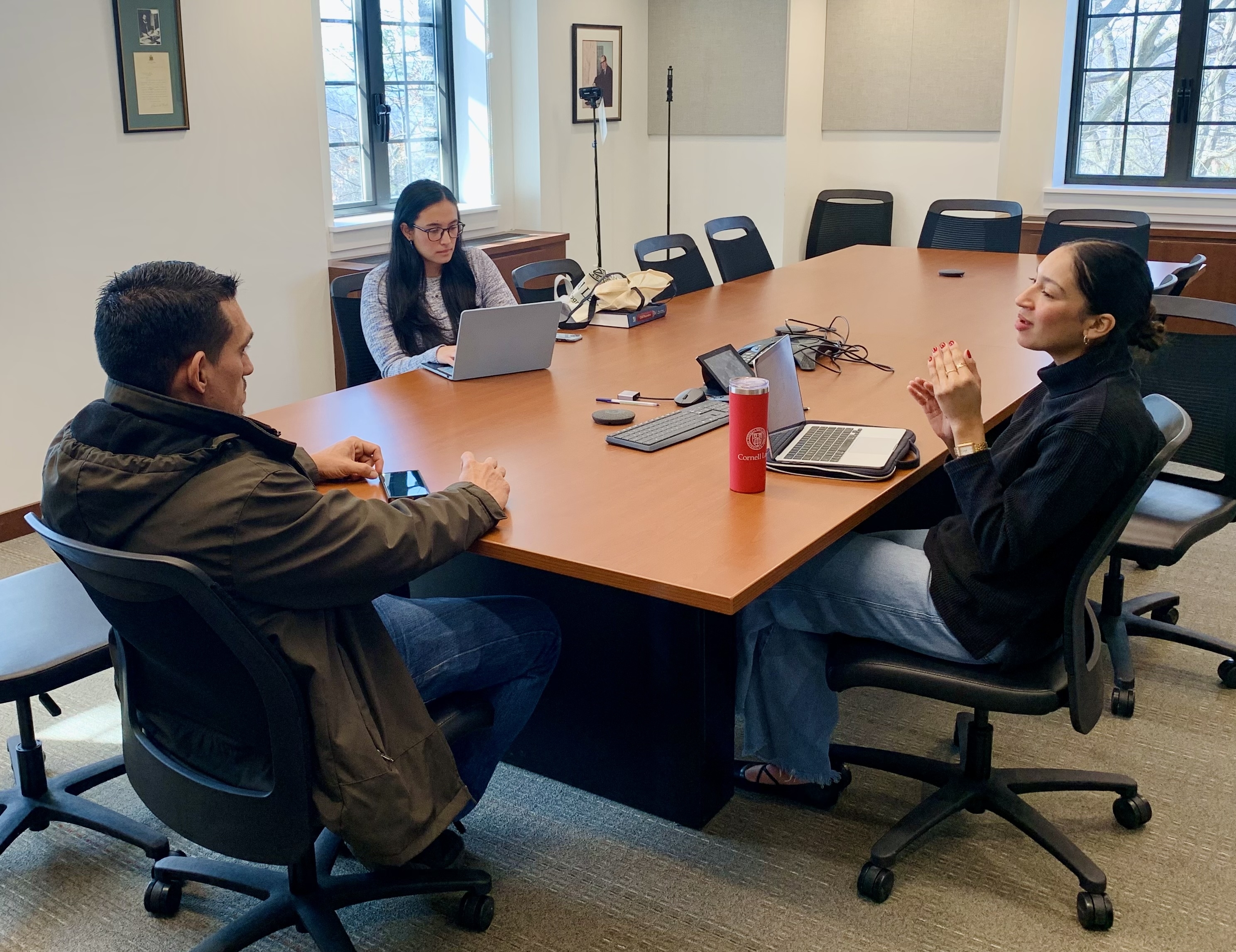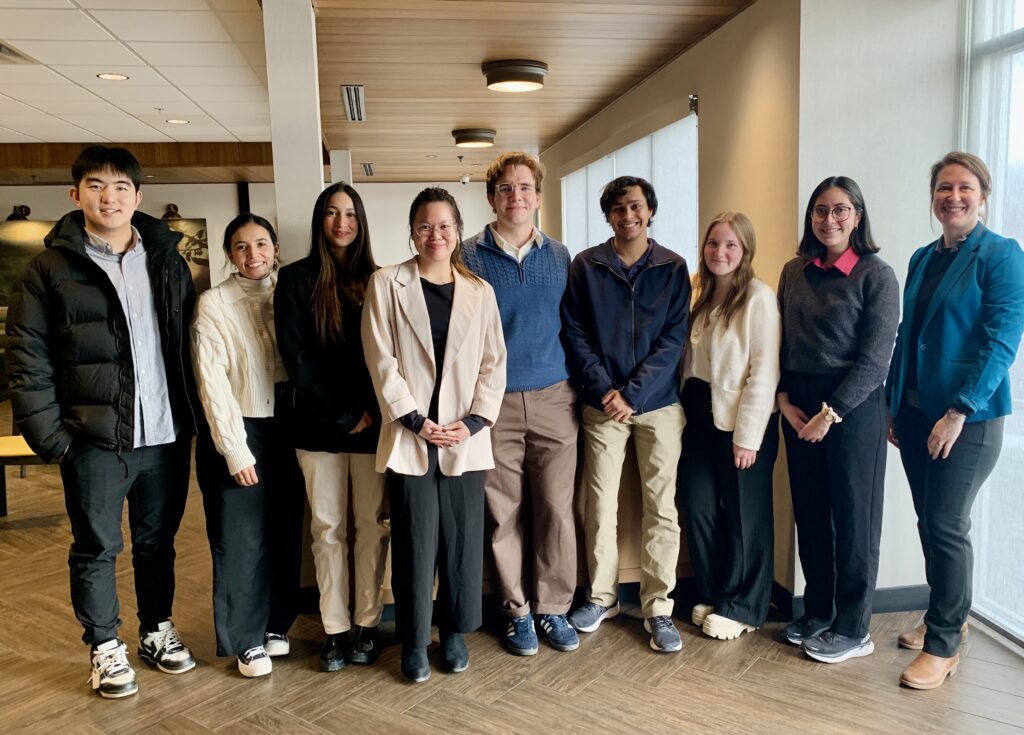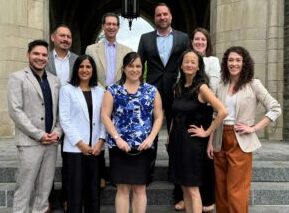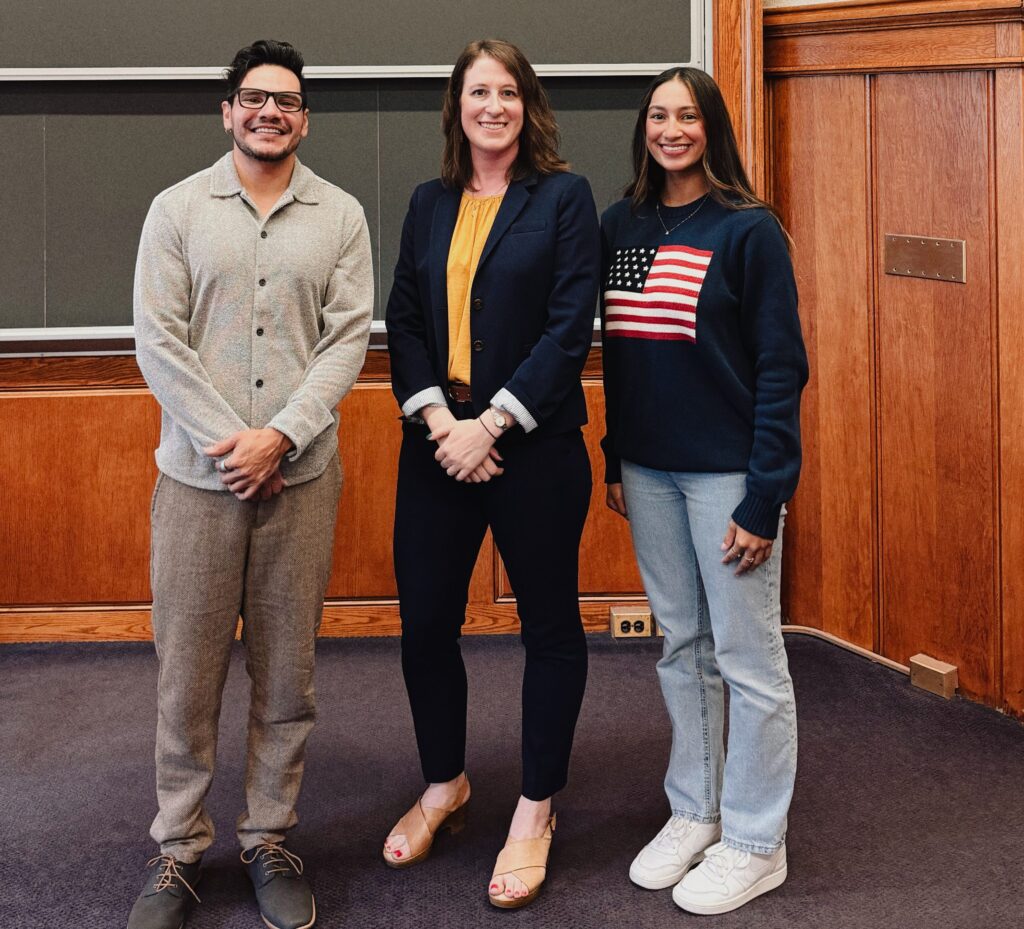This website uses cookies
We use cookies to ensure that we give you the best experience on our website. If you continue to use this site we will assume that you are happy with it.

In January 2020, Cornell Law launched its 1L Immigration Law and Advocacy Clinic—one of the few in the nation offering first-year law students the chance to work directly with clients. The clinic has since become a cornerstone of the Law School’s experiential learning program, training students to represent asylum seekers, detained immigrants, and DACA recipients and other undocumented professionals, while developing advocacy skills in legal analysis, client interviewing, and written and oral persuasive argument.
“Students were telling us they wanted to get into the work earlier,” said Jaclyn Kelley-Widmer, clinical professor of law and founding director of the clinic. “They didn’t want to wait until their second or third year to make a tangible impact.”
Not only did Kelley-Widmer go on to launch one of the nation’s only 1L clinics, but she published a well-received article entitled “Why Not a 1L Clinic?” and organized a panel at the national clinical law teachers’ conference with faculty at other schools, including the University of Michigan and Yale Law School.
That early engagement has defined the clinic’s approach and made a lasting impression on the students. Early cases focused on DACA holders and detention work, with students traveling to facilities in Louisiana and Batavia, New York, where they met with clients who often did not speak English or know how to navigate the legal system.

Students in the 1L clinic visited a detention center in Batavia, NY, in spring 2025.
“My experiences in the detention centers took me out of the comfortable and purely observational world of academia and into what my life could have looked like had I not had the privilege of being born in this country,” said Josiah Jones ’25, who visited both facilities during his time with the clinic.
For Tori Staley ’23, the clinic was transformative. As a 1L, she sought practical work to balance her legal theory classes. The clinic “was the experience that kept me in law school and made me feel like I was doing something meaningful,” Staley said. “As a 1L, it introduced me to the clinic community, a group of students and faculty that felt most like my home for the three years I was at Cornell and has continued to foster relationships for me past graduation.”
As the clinic grew, Kelley-Widmer structured the clinic to incorporate advanced students to mentor 1Ls and continue cases across semesters. Staley helped win a defensive asylum case she worked on from her first through third year of law school. “Professor Kelley-Widmer supported us and taught us, but really empowered us to feel like lead attorneys on our client’s case,” she said.

The Path2Papers staff
Recently, the clinic integrated into its work the Path2Papers project (P2P), a national immigration initiative co-led by Kelley-Widmer and Krsna Avila ’17, P2P’s legal director. The partnership expands the clinic’s scope to include employment-based immigration cases, helping DACA recipients and other undocumented professionals explore legal pathways to remain and work in the United States.
Path2Papers operates within the Bay Area DACA Initiative, a coalition of immigration service organizations that coordinate strategy and share expertise. Since its launch, the initiative has served more than one thousand clients nationwide and reached thousands more through educational programs.
This semester, clinic students are assisting DACA recipient scientists—including one developing medical care for astronauts and another researching black holes—to secure more stable immigration status.
“Working with DACA recipients who are also scientists seeking employment-based visas has been one of the most intellectually engaging experiences I’ve had in law school,” said Melissa Fergusson ’26. “Helping these young scientists—who have known America as their home since childhood—pursue a pathway to a green card and U.S. citizenship through their research reminds me how creative and innovative immigration law can be. It’s meaningful to contribute to the Path2Papers effort to highlight the skills and passions of individuals who are already making extraordinary contributions to their fields.”
One DACA client (name withheld) described the trust that developed through the clinic’s support. “At the beginning, I was scared because this was all new for me. But when Walter [Rubio ’26] and Ian [Hayes ’26] and the others in the group contacted me, they made me trust them, because every time I talked to them I noticed how prepared they were . . . Thank you for having this kind of help for people like me.”

From left: Krsna Avila ’17, Kelley-Widmer, and Adriana Gonzalez ’27
For students, the P2P collaboration represents both public-interest commitment and legal innovation. “By exposing students early on to employment-based immigration law, we’re helping to create a new generation of lawyers who hold knowledge that has traditionally been absent from clinical casework,” Avila said.
Currently, amid shifting national policies and growing uncertainty for immigrant communities, students are focused on the urgency of staying adaptable and steadfast in their commitment to advocacy and support.
“Navigating immigration work in a time of sudden changes in law and policy has emphasized the importance of being flexible and moving quickly to respond to the needs of our clients,” said Sahil Venkatesan ’27. “There’s a lot of fear in the community right now, so outreach and reassurance are essential.”
Paige Hoss ’27 added, “It can be difficult to operate within a system where policies and procedures change so rapidly, but we owe it to the community to not let that discourage us. In a time when the immigrant community is facing such uncertainty, it is meaningful to walk alongside our clients and provide support wherever we can.”
As the clinic marks its fifth anniversary, Kelley-Widmer reflected on its mission: “Five years in, the clinic continues to evolve, but its purpose hasn’t changed: to train lawyers who not only understand the law but use it to change lives.”
For Camilah Hamideh ’22, that purpose is deeply personal. “My experience in the 1L Immigration Law and Advocacy Clinic not only shaped the kind of lawyer I have become but also inspired me to pursue a career in civil rights law in the nonprofit sector,” she said. “It was the first time I realized how I could actually use the law to protect people and push back against injustice.”